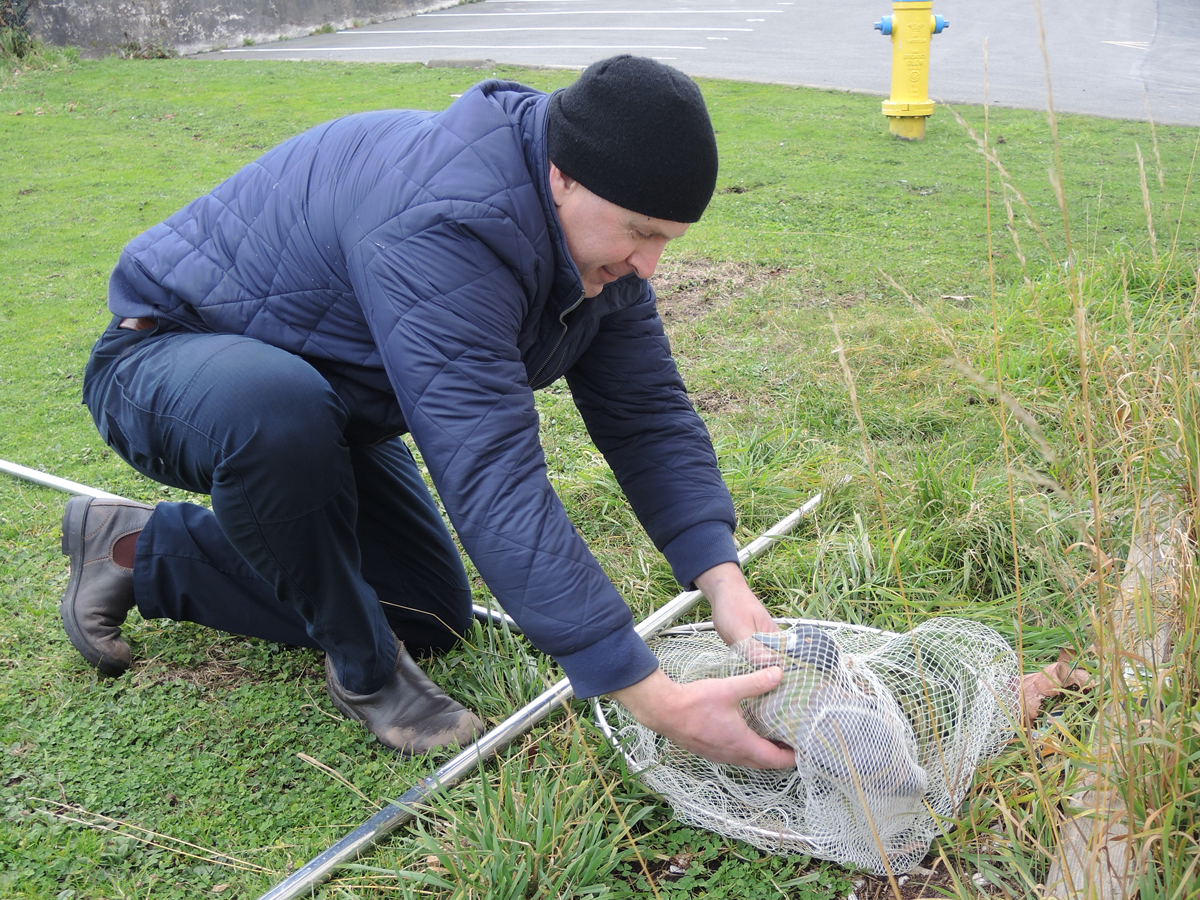Slick training – caring for oil soaked birds
By Lookout on Dec 18, 2019 with Comments 0

A participant in the Oiled Wildlife Preparedness Response Training Course practices proper handling skills after capturing a decoy duck with his net during the hands-on portion of the course. Photo by Peter Mallett, Lookout
Peter Mallett, Staff Writer ~
Armed with large nets, a group of government employees fanned out across a field at Work Point in search of oil-covered waterfowl.
However, they weren’t searching for real-life, oil-soaked birds, but instead three plastic decoy ducks; the activity was part of an Oiled Wildlife Preparedness and Response Training Course led by instructors from environmental firm Focus Wildlife Canada.
The two-day course was attended by both civilian employees from the base, including members of Port Operations and Emergency Services Branch (POESB), a representative from Canadian Fleet Pacific, and workers from Fisheries and Oceans Canada, Environment and Climate Change Canada, and Western Canada Marine Response Corporation.
“This training course explored the framework of oiled wildlife response plans and also gave us an opportunity to discuss how our agencies would work together in the event of a spill,” said Lorraine Crinkley, POESB Branch Environment Officer.
After the well-hidden decoys were uncovered hiding in tall clumps of grass, attendees then broke into groups of two to cast their nets on a much bigger challenge – capturing Robo Duck, a fast-moving decoy strapped to a remote control toy truck and operated by the instructor.
“It might seem sort of silly that we are out here searching for duck decoys with nets but we are actually practicing a fundamental and important skill,” said Megan Willie, Pacific Wildlife Emergency Response Co-ordinator for the Canadian Wildlife Service. “We have a lot of biologists on our team that have these sorts of field skills for the research they do, but they have never had to apply these skills in a spill situation, at least not yet.”
Course instructor Jenny Schlieps says a combination of hands-on and in-class instruction and discussion educated attendees on the planning and preparedness necessary to care for injured wildlife, including safe handling and oil removal techniques from their skin, fur and/or plumage.
“Students get a general overview of how to remove the oil, but the main point of this instructional exercise is to get them to understand what to do before a spill ever happens, and what to do in the first 12 to 24 hours before wildlife response professionals can get on site to do the work,” said Schlieps.
Focus Wildlife is an independent emergency response private-sector firm operating in Canada and the United States. While the company’s employees act as first responders for wildlife that become injured or ill during oil spills, they also educate both government and private sector employees on what to do when a spill happens.
“We are brought in to respond to actual incidents, but also do consulting, instruction and planning for government and private organizations and their employees,” explains Schlieps.
For more information about international Focus Wildlife and Focus Wildlife Canada visit their website www.focuswildlife.org
Filed Under: Top Stories
About the Author:





